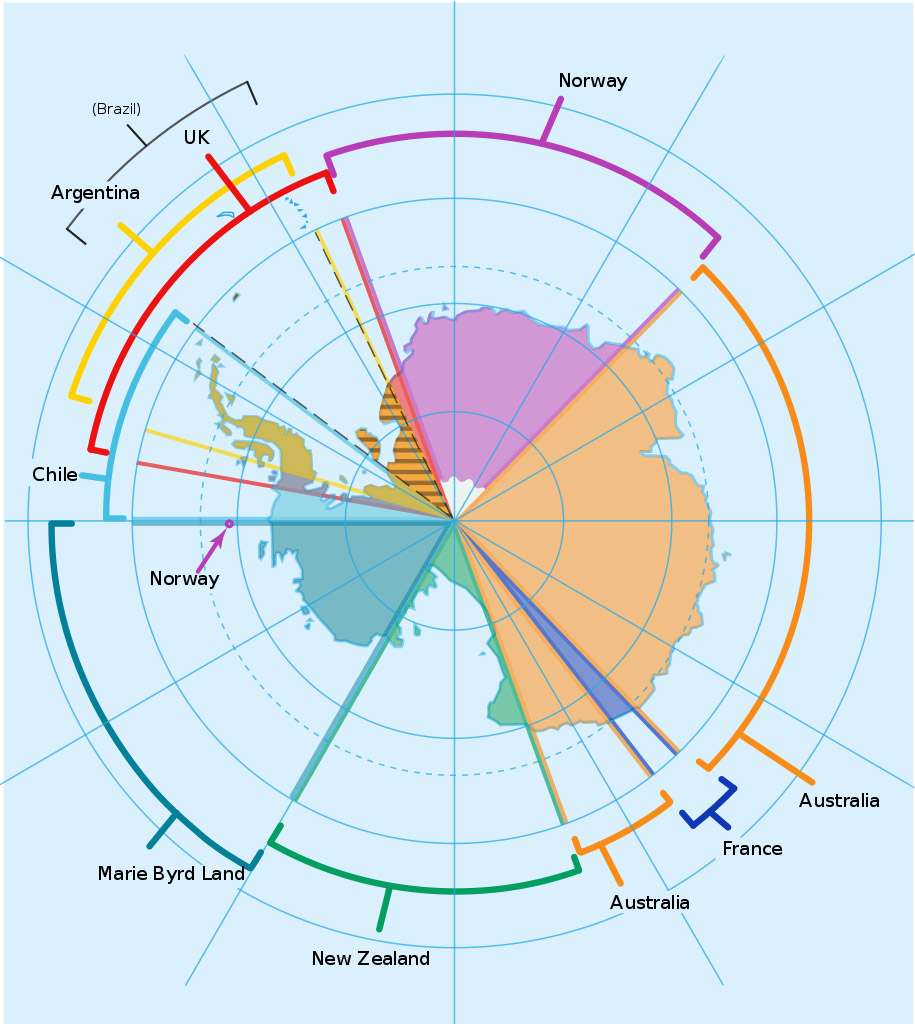The modern world is one of nation-states strictly defined by borders. Challenge those borders and it’s a sure-fire way to have troops and tanks rolling in your direction before lunchtime. However, despite humanity’s relatively recent obsession with lines on a map, there are a small number of places on Earth that no sovereign state claims for its own.
They are known as Terra nullius – a Latin expression meaning “no one’s land” – and among them are Bir Tawil between Egypt and Sudan, a few pockets involved on the Croatia–Serbia border, and vast chunks of Antarctica.
Bir Tawil: A Nomad’s Land
One of the most significant examples of a Terra nullius is Bir Tawil, a 2,060-kilometer square (795 square mile) patch of land near the border between Egypt and Sudan, which is claimed by neither country.
It’s a desolate desert land where temperatures of 45°C (113°F) are not unheard of in the height of summer. The population of this land is officially zero, although it’s often frequented by passing nomadic tribes, such as the Ababda people.
This quirk of geography is largely thanks to the borders drawn up by the British Empire in the 19th and 20th centuries. According to the US State Department, the UK reached an agreement with Egypt in 1899 that stated the “territories south of the 22nd parallel of latitude” belonged to Sudan, which would place Bir Tawil under Sudanese control.
In 1902, the British drew up another plan for the Sudan-Egypt Boundary. Under this scheme, Bir Tawil was placed under Egyptian administration because the area was occasionally used by the Ababda tribe, who were based near Aswan in southern Egypt.
However, Egypt only wants to abide by the original border from 1899, while Sudan claims the administrative border of 1902. In other words, Egypt believes Bir Tawil is in Sudan, but Sudan believes it’s in Egypt.
Some groups have attempted to lay claim to the land, but none have been internationally recognized. In 2014, US resident Jeremiah Heaton from Virginia attempted to claim the area for his own, calling it the “Kingdom of North Sudan,” and announcing himself as the self-proclaimed king. His motivation was so he could grant his daughter’s wish of becoming a princess. Unsurprisingly, his claim was not recognized by the United Nations.
Another less ludicrous idea is that the Bir Tawil could serve as an example of a new type of jurisdiction in which the Indigenous people own the land rights.
For now, however, Bir Tawil belongs to no one.
Marie Byrd Land: Antarctica’s unwanted pie slice
In the eyes of international law, no part of Antarctica is owned by a single country. However, that hasn’t stopped seven nations from claiming parts of the continent as their own: Argentina, Australia, Chile, France, New Zealand, Norway, and the UK.
The typical map showing these territorial claims will show Antarctica cut up into slices like a pizza, with Australia and Norway taking the lion’s share. It’s notable though, that one corner lays unclaimed, known as Marie Byrd Land.

Map showing the territorial claims of Antarctica.
It’s named after the wife of American naval officer Richard E Byrd who explored the region in the early 20th century.
Spanning a colossal 1,605,792 square kilometers (620,000 square miles), Marie Byrd Land is the largest unclaimed territory in the world. The reason why it has remained a Terra nullius is simply because it’s so isolated and untraversable, even by Antarctica’s standards.
Gornja Siga: Libertarians dream of Liberland
Between the Balkan border of Croatia and Bosnia on the eastern bank of the River Danube, several patches of land have been heavily contested since the bloody breakup of Yugoslavia in the 1990s. On the western bank of the river, there is the opposite problem: four or so lands are not claimed by either country.
Gornja Siga is the largest of these areas, consisting of just 7 square kilometers (2.7 square miles) of forested land that acts as a floodplain of the Danube. It’s technically under de facto Croatian control, although they state the land is Serbian, while Serbia makes no claims on the land.
While neglected by both Croatia and Bosnia, some other parties have been keenly interested in calling Gornja Siga their own.
In April 2015, a small group of libertarians led by Czech politician Vít Jedlička planted a flag on the uninhabited swamp and proclaimed it to be a new microstate called Liberland. The idea was to turn it into a libertarian utopia with no compulsory taxes, minimal state regulations, and Bitcoin as currency.
“The motto of Liberland is ‘To live and let live’ as it prides itself on personal and economic freedom for its people; this includes limited power given to the government to ensure less interference with the freedom of the people and the nation as a whole,” reads the Liberland website, where you can even sign up for citizenship.
Unfortunately, the dream has met a number of hurdles. Despite showing little interest in Gornja Siga before, Croatian authorities were not keen on the idea of having a wild libertarian microstate on their doorstep, so their police force has reportedly been arresting anyone who tried to step foot on the land.
Source Link: Terra Nullius: There Are Still Unclaimed Lands On Earth That No Country Wants